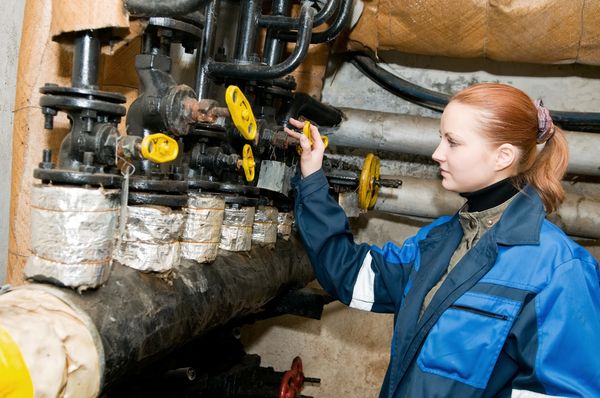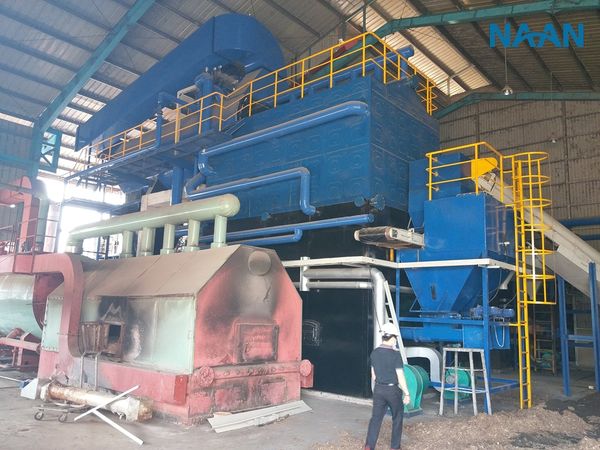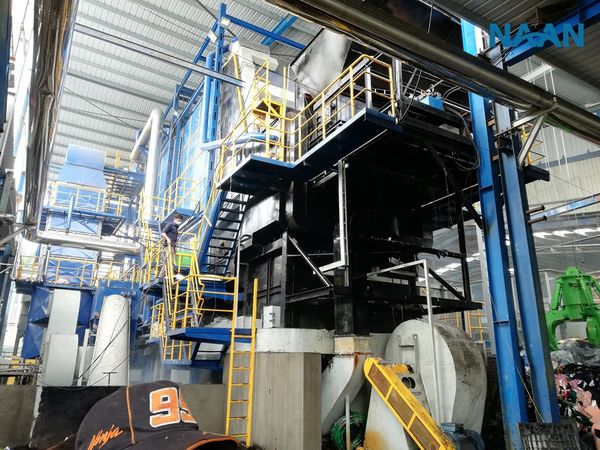Banning women from operating boilers: Reasons and controversies

(Image: ShutterStock)
Hello everyone, today Naan wants to share with you an interesting regulation in QCVN: 012008/BLĐTBXH – National technical standard on occupational safety for boilers and pressure vessels. It is the prohibition of arranging female workers directly operating boilers. Do you know why there is such a regulation? Let's find out with Naan!
Boilers are crucial devices in industries such as metallurgy, textile, food, paper, rubber, cement, electricity, and more. Boilers transform water into steam by heating water at high pressure. The steam is then used to power machines or provide heat for production processes. Boilers pose a high risk of accidents if not operated and maintained correctly. Accidents can occur due to boiler explosions, gas leaks, explosive gas fires, toxic gas emissions, etc. These accidents not only cause property damage but also pose risks to the lives and health of workers.
Therefore, ensuring the safety of boiler operators is essential. According to QCVN: 012008/BLĐTBXH, boiler operators must have a safety certificate issued by the authorized agency, good health, and practical experience. Additionally, this standard also states: "Prohibiting the arrangement of female workers directly operating boilers." This is a surprising and controversial provision in public opinion. Why prohibit women from operating boilers? Is this an expression of gender discrimination?

Modern boilers are highly automated; all tasks are automated by machines.
Some opinions suggest that prohibiting women from operating boilers is due to the following reasons:
- Boilers require physical strength and high technical skills to operate. Women are generally physically weaker and less technically inclined than men, making them unsuitable for this job. Some tasks related to boilers, such as pressure checks, valve adjustments, component replacements, etc., require operators to have the strength to rotate, pull, or carry equipment. Women may face difficulties in performing these tasks.
- Boilers are devices in direct contact with high heat and pressure. Women are often sensitive and vulnerable to these factors, which can lead to errors or accidents during operation. The impacts of heat and pressure on women's bodies, such as reduced fertility, menstrual disorders, stress, or insomnia, may affect concentration and composure during boiler operation.
- Boilers are devices related to national security and social safety. Women are more susceptible to abduction, threats, or attacks by criminals, posing a risk to national security and social safety during boiler operation. Some criminals may exploit the vulnerability of women to steal, rob, or damage equipment. Women may be coerced or bribed to disclose confidential information or distort the operation process.

Boilers are devices in direct contact with high heat and pressure.
On the other hand, some argue that prohibiting women from operating boilers is unreasonable and violates gender equality rights. They provide the following reasons:
- Boilers are gender-neutral devices during operation. Women can have the strength and technical skills to operate boilers if trained and coached properly. Some tasks related to boilers, such as supervision, control, analysis, reporting, etc., require operators to have intelligence, creativity, and responsibility. Women can excel in these tasks.
- Boilers do not depend on the health or mental state of the operator. Women can control emotions and cope with emergency situations during boiler operation if equipped with safety and protective devices. Safety and protective devices for operators, such as fire-resistant clothing, heat-resistant gloves, helmets, dust-proof goggles, help operators avoid injuries caused by heat and pressure.
- Boilers are not related to national security and social safety during operation. Women can protect themselves and equipment during boiler operation with support from security and preventive measures.

Women can have the strength and technical skills to operate boilers if trained and coached properly (Image ShutterStock)
So, what do you think about the regulation prohibiting women from operating boilers? Do you agree or disagree with this provision? Please leave your comments below! Thank you for following Naan's article. See you in other topics!

